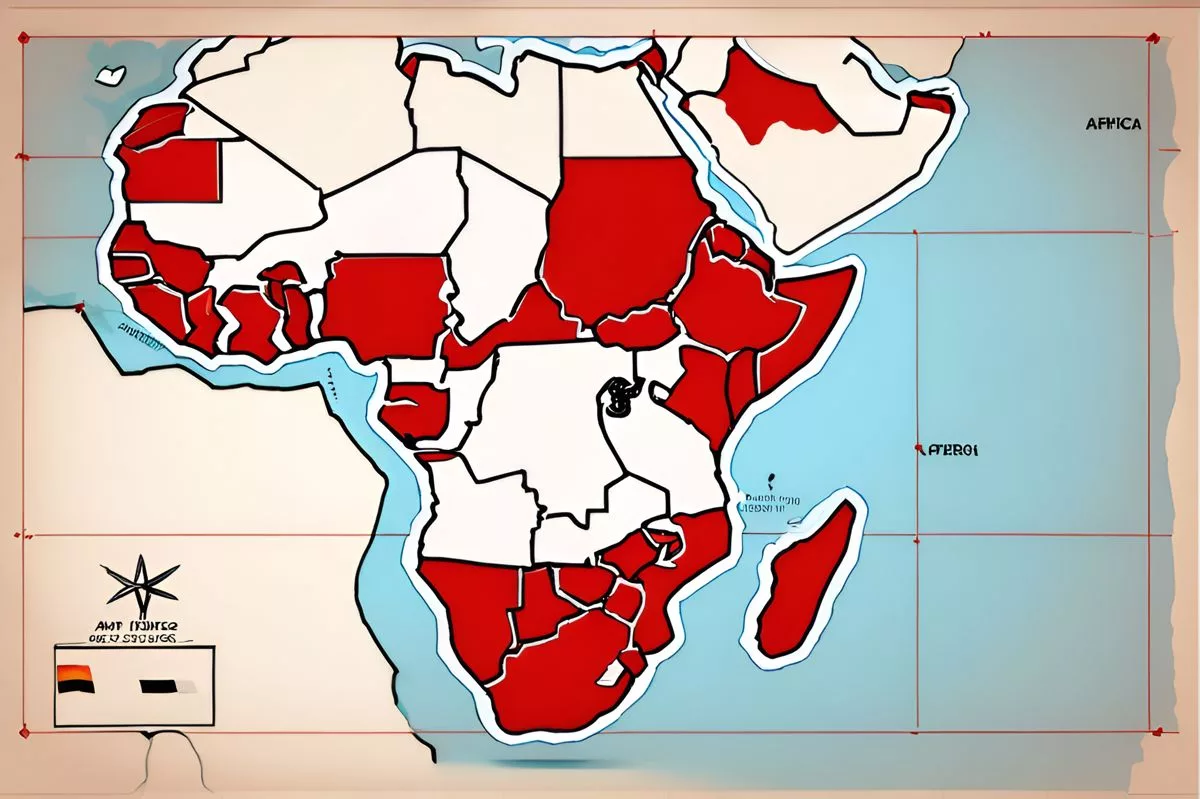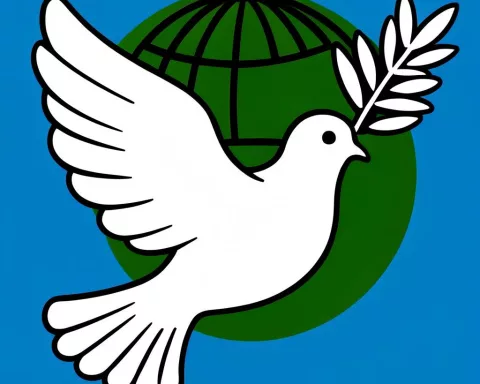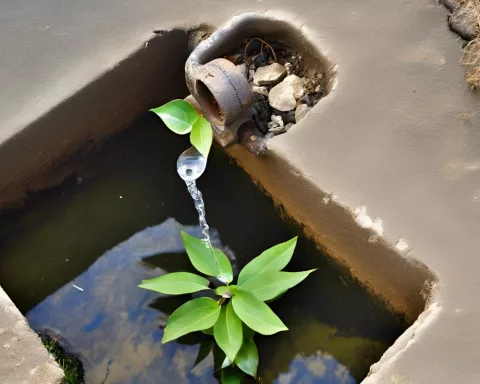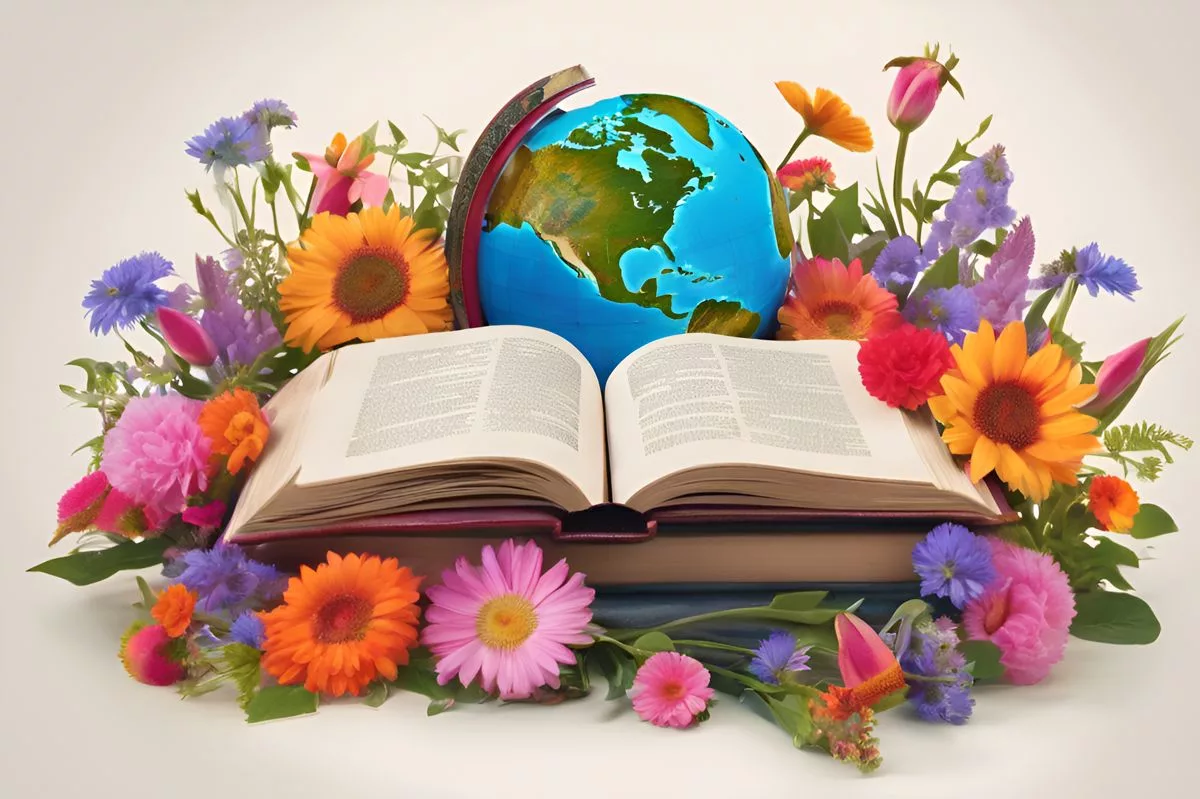The Africa Peace and Security Dialogue is an important event where leaders and thinkers come together to find ways to solve Africa’s problems and build peace. At its first meeting in the beautiful Magaliesburg, South Africa, the focus was on tackling conflicts and promoting security across the continent. With rising tensions and ongoing violence, the dialogue aimed to inspire action and unity among African nations. Minister Ronald Lamola emphasized the need for collaboration to face the challenges head-on, echoing the dreams of past leaders who envisioned a brighter future for Africa. This gathering is just the beginning of a journey towards lasting peace and stability.
“`markdown
What is the Africa Peace and Security Dialogue?
The Africa Peace and Security Dialogue is a platform to address Africa’s challenges through collaboration. It aims to foster peace, enhance security, and promote stability by uniting leaders and visionaries to develop practical solutions for ongoing conflicts and crises on the continent.
“`
Africa’s Path to Peace: Insights from the Inaugural Africa Peace and Security Dialogue
The Gathering of Visionaries
In the picturesque setting of Mount Grace Hotel in Magaliesburg, the Thabo Mbeki Foundation hosted the first-ever Africa Peace and Security Dialogue. This significant event brought together esteemed leaders and visionaries dedicated to reshaping Africa’s future with a focus on peace and security. Minister Ronald Lamola’s compelling address underlined the urgency and foresight needed to tackle the continent’s most pressing issues, setting a transformative tone for the dialogue. Inspired by the legacy of figures like Pixley Isaka Seme, who dreamed of Africa’s renaissance, the dialogue aimed to develop practical solutions for the continent’s challenges.
Amidst an era fraught with global dangers and continual conflicts, Minister Lamola emphasized South Africa’s unwavering commitment to the African Agenda. This initiative, characterized by a spirit of partnership, seeks to address the over 120 active conflicts worldwide, with Africa’s issues consuming a significant portion of the United Nations Security Council’s peacekeeping resources. The ongoing crises in regions like the eastern Democratic Republic of the Congo (DRC) and Sudan demand immediate global attention, often overshadowed by conflicts elsewhere.
Minister Lamola voiced concern over the resurgence of coups on the continent, with six African Union (AU) member states currently suspended due to unconstitutional changes in government. This alarming trend highlights the need for dialogue to address West Africa’s colonial past and reinforce the AU and Regional Economic Communities as essential pillars of African integration. The escalating violence in the Sahel and the rise of terrorism and extremism, now reaching Southern Africa, amplify the need for coordinated efforts. The terror attacks in Mozambique’s Cabo Delgado, for example, pose a regional security threat, prompting South Africa to deploy troops to the Southern African Development Community Mission in Mozambique (SAMIM) and the South African-led peacekeeping mission in the eastern DRC, known as SAMIDRC.
South Africa’s Role in Peacebuilding
South Africa’s efforts extend beyond immediate military engagement. The nation supports Libya in hosting an inclusive reconciliation conference, driven by Libyan citizens themselves. As Co-Chair of the AU Ad-hoc High-Level Committee on South Sudan, South Africa remains committed to assisting the country’s democratic transition. This involves ongoing ministerial visits to Juba, fostering dialogue among stakeholders to navigate obstacles that impede South Sudan’s journey toward its first general elections since gaining independence.
Over the past thirty years, South Africa has significantly contributed to conflict resolution across the continent, partnering with countries like the DRC, Burundi, Zimbabwe, and Lesotho. These efforts underscore South Africa’s leadership in peacekeeping operations, further solidified by its appointment as the AU Champion for promoting AU-UN cooperation in peace and security. South Africa’s 2007 tenure on the UN Security Council highlighted the importance of coordinating peacekeeping efforts with regional organizations, a cornerstone of its diplomatic legacy.
Addressing another critical aspect, South Africa advocates for the operationalization of UN resolutions to finance Africa-led peace support initiatives. This emphasizes the necessity of collaboration between the continent, the UN, and its member states. As the current Chair of the G20, South Africa is poised to spotlight transformative global agendas, including the need for reforming global financial structures and inclusive governance of emerging technologies like artificial intelligence. The disproportionate allocation of climate finance remains a pressing issue, with Sub-Saharan Africa receiving a mere 3% of global funding despite being heavily affected by climate change. Minister Lamola called on Northern Hemisphere countries to fulfill their commitments under the 2015 Paris Agreement, crucial for mitigating climate impacts in the global South.
Challenges and Opportunities Ahead
The United Nations Secretary-General’s report on critical minerals presents a vital opportunity for Africa, a continent rich in these resources. To harness this potential, Africa must enhance its value addition and local manufacturing capabilities through the Africa Continental Free Trade Area. Presenting a unified voice on critical minerals can stimulate inclusive economic growth and ensure that Africa benefits from this resource wealth.
A more inclusive UN Security Council, where all member states have equitable powers, would enhance global peace and security efforts. South Africa’s unwavering support for the 2005 Ezulwini Consensus, representing the continent’s unified position on UNSC reform, remains firm. Minister Lamola urged African nations to seize this opportunity to secure two veto-holding seats, emphasizing the need for collective action to foster progress.
South Africa’s engagement in peace-making, peacekeeping, and peacebuilding initiatives reflects its understanding of the deep connection between peace, security, and development. Their holistic approach underscores stability as a prerequisite for achieving broader development goals. Agenda 2063, with its flagship program “Silencing the Guns,” seeks to expedite the continent’s progress. President Cyril Ramaphosa highlighted this during the 14th Extraordinary Session on Silencing the Guns in 2020, stressing the importance of implementing the AU Master Roadmap of Practical Steps to Silence the Guns.
A Call to Action
The Africa Peace and Security Dialogue (APSD) stands as a vital platform for fostering coordination and crafting African solutions to African challenges. Minister Lamola’s call to action echoes Pixley ka Isaka Seme’s vision, urging the continent to awaken its potential and move towards peace and prosperity. This dialogue not only stresses the necessity for collaborative action but also reinforces South Africa’s steadfast commitment to building a better Africa within a better world. Hosted by the Thabo Mbeki Foundation, this inaugural gathering marks a significant milestone towards realizing that vision, paving the way for a more secure and prosperous future for Africa.
“`
“`markdown
What is the Africa Peace and Security Dialogue?
The Africa Peace and Security Dialogue is a platform to address Africa’s challenges through collaboration. It aims to foster peace, enhance security, and promote stability by uniting leaders and visionaries to develop practical solutions for ongoing conflicts and crises on the continent.
Why was the inaugural meeting held in Magaliesburg, South Africa?
The first meeting took place at the Mount Grace Hotel in Magaliesburg, South Africa, hosted by the Thabo Mbeki Foundation. This picturesque location was chosen to inspire dialogue among esteemed leaders and visionaries dedicated to reshaping Africa’s future, emphasizing the importance of peace and security.
What issues did Minister Ronald Lamola emphasize during the dialogue?
Minister Ronald Lamola highlighted the urgency of collaborative efforts to tackle Africa’s pressing challenges, including rising conflicts, coups, and the resurgence of terrorism. He called for unity among African nations and stressed the need for dialogue to address historical issues and to reinforce essential organizations like the African Union and Regional Economic Communities.
How does South Africa contribute to peacebuilding efforts in Africa?
South Africa plays a significant role in peacekeeping and conflict resolution across the continent. It has engaged in various initiatives, including supporting democratic transitions in South Sudan and hosting reconciliation efforts in Libya. South Africa’s leadership in peacekeeping operations and its commitment to operationalizing UN resolutions for financing peace initiatives underscore its dedication to building stability in Africa.
What is the significance of the Africa Continental Free Trade Area in relation to peace and security?
The Africa Continental Free Trade Area (AfCFTA) is vital for enhancing local manufacturing and value addition of Africa’s rich resources. By presenting a unified voice on critical minerals, African nations can stimulate economic growth, which is essential for achieving long-term stability and security across the continent.
What are the future expectations from the Africa Peace and Security Dialogue?
The Africa Peace and Security Dialogue aims to foster coordination and develop African solutions to the continent’s challenges. Minister Lamola’s call to action encourages collective efforts towards peace and prosperity. This platform is seen as a stepping stone for ongoing discussions and initiatives that will ultimately contribute to a more secure and prosperous Africa.
“`












